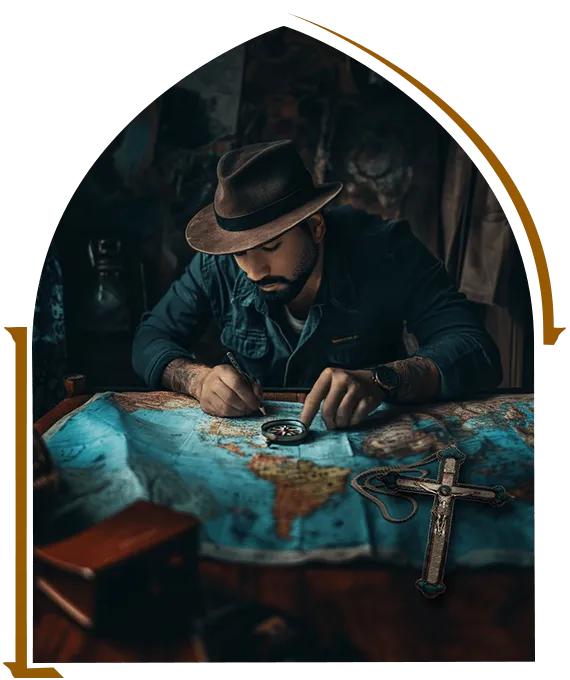New Book!
THE LOST ART OF
CATHOLIC DREAM INTERPRETATION
Get The Book For
(Pretty-Much-Close To)
Free!
You Only Pay The Cost of The Book
(Includes Free Shipping Worldwide!)

Get The Book For (Pretty-Darn-Close To) Free!
You only pay shipping & materials
The Big Idea Behind This Book
Your Paragraph text goes Lorem ipsum dolor sit amet, consectetur adipisicing elit. Autem dolore, alias, numquam enim ab voluptate id quam harum ducimus cupiditate similique quisquam et deserunt, recusandae. here
Your Paragraph text goes Lorem ipsum dolor sit amet, consectetur adipisicing elit. Autem dolore, alias, numquam enim ab voluptate id quam harum ducimus cupiditate similique quisquam et deserunt, recusandae. here
Your Paragraph text goes Lorem ipsum dolor sit amet, consectetur adipisicing elit. Autem dolore, alias, numquam enim ab voluptate id quam harum ducimus cupiditate similique quisquam et deserunt, recusandae. here
Your Paragraph text goes Lorem ipsum dolor sit amet, consectetur adipisicing elit. Autem dolore, alias, numquam enim ab voluptate id quam harum ducimus cupiditate similique quisquam et deserunt, recusandae. here
Your Paragraph text goes Lorem ipsum dolor sit amet, consectetur adipisicing elit. Autem dolore, alias, numquam enim ab voluptate id quam harum ducimus cupiditate similique quisquam et deserunt, recusandae. here
An Authentically Catholic Way to Interpret Your Dreams
(That Actually Works)
Five transformations emerge after reading this book...
1
You Will
Be Your Own
Catholic Dream Interpreter

If you had a strange dream that you know means something more than an ordinary dream but you can't figure it out, The Lost Art of Catholic Dream Interpretation is a fantastic and -Very Catholic - tool to help you find meaning without resorting to superstition or the occult. No one can promise that you will become the next Daniel or Joseph, because Daniel and Joseph had special gifts from God to understand dreams - supernatural gifts. Yet, there are natural skills and practices that you can develop, and when you learn them, they bring out the dream interpreter that's already in you. The Lost Art of Catholic Dream Interpretation teaches you these natural skills and techniques that Church Fathers and Saints wrote about and practiced.
2
You Will
Become a
Catholic Dream Navigator

With The Lost Art of Catholic Dream Interpretation, you will have a map and a compass so you can avoid common pitfalls and traps of the enemy. Some of these traps are so subtle that they deceive even those who are spiritually advanced and well grounded in prayer. As you explore and blaze your trail, discovering the treasure of this lost art, you will find new confidence and develop spiritual discernment.
3
You Will
Discover
Your Self in Accordance to Catholic Teachings

The Lost Art of Catholic Dream Interpretation is a way of self discovery valued by saints like Therese of Avila. Self discovery is key to understanding your dream images. You may think that you don’t know anything about your dream because it makes no sense to you. But you’ll be surprised to see how much you really do know about your dream and how much it says about who you are and how you act. When you learn the language of the night, you will see yourself in a whole different way... like looking at bubbles filled with moments of your life.
4
You Will Fortify
Your Faith and
Embrace Your Dreams

A leap of faith is used to describe the feeling of trusting without knowledge or certainty. But with The Lost Art of Catholic Dream Interpretation, you learn to trust from knowing what kind of dream you experienced, what it means and what to do about it. By looking inward at your dreams the way the saints did, you will know which dreams come from God and which ones don't. That kind of certainty gives you peace of mind that is like floating through heavenly clouds.
5
You Will
Advance Your
Spiritual Life

With The Lost Art of Catholic Dream Interpretation, you share in the techniques of the Church Fathers - Tertullian, Origen - and Saints Jerome, Augustine of hippo, Gregory the Great, and Thomas Aquinas. As you examine and contemplate your dreams, your payer life grows, and that transforms your daily life. When you read and practice these traditional methods you learn that, though you are small in the eyes of God, yet you stand on the shoulders of giants, and can reach new heights in judgement of spiritual matters.

How this book will upgrade your mind
Three transformations emerge after reading this book...
About the Book
Watch This Video Interview with The Author
Why I'm Giving The Book Away at Cost...
(And no, it's not a gimmick.)
I am selling each book at the cost of printing, fulfillment, and shipping, and not a penny more.
Why am I doing this?
I'm not a saint.
Yet, there are two good reasons I'm doing this.
I spent my whole lifetime as a convert wishing there was something on dream interpretation for Catholics. I began collecting material from Scripture, Saints like John Bosco, Therese of Avila and all the Church Fathers. And the church Fathers are not an easy read because the English translations are old English - and take my word for it - it's no Shakespeare. I worked very hard to find every reference in scripture and much of tradition, and I put it all together for you.
So the first good reason why I'm doing this, is because I don't want you to waste another moment of you life trying to piece it all together! I've already done the legwork for you. I'd rather you start discerning dreams by learning the Lost Art of Catholic Dream Interpretation today so that you will grow spiritually and start discovering another part of yourself.
I've experienced first hand how dreams can inform your conscience and lead you to Reconciliation. It's changed my life, and my only regret is that I didn't learn it earlier!
Therefore, my goal is to get this book into as many hands as possible.
The second good reason I'm selling this book at cost is because I know by transforming your life, you may become interested in other things I share that will transform you even further!
That's all.
I know that The Lost Art of Catholic Dream Interpretation will change your life, and I can't wait for you to read it!
Frequently Asked Questions
Your most asked questions...
How long will it take for the book to arrive?
Your book will be packaged up beautifully, and sent from Taylor, Michigan, USA.
For U.S. customers, you can expect the book to arrive in 7-15 business days (could be a lot sooner).
For International, you can expect the book to arrive in 10-22 business days (could be a lot sooner).
You will receive a tracking number via email immediately after your order.
If you have any questions, don't hesitate to contact support (listed at the footer of this page).
Do you offer refunds?
Yes. We believe in this book so much that if you're unsatisfied (for any reason), you can send the book back within one-year, and get a 100% refund. No questions asked. Just contact me via the support details at the footer of this page. I'll share the return address, and refund every penny.
If you're not happy, we're not happy!
About The Author
Meet The Creator of the Lost Art of Catholic Dream Interpretation...

Tim R Bartel
Tim R. Bartel is a convert to Catholicism over thirty years ago. During his conversion, he read about the dreams of Saint John Bosco (AKA Don Bosco). In one of the dreams, Don Bosco told of a great ship headed for the Eucharist and Mary, which were on the top of a pair of columns in the middle of the sea. The ship was being attacked by enemy ships and there were fierce storms. Right away Tim could see that the ship was the Catholic Church with the Pope tirelessly guiding her to salvation.
Tim was so fascinated by that particular dream that ten years after he came home to the Catholic church, Tim wrote and published his first book: Dream of the Great Ship - Interpretations of Saint John Bosco's Dream of the Two Columns. His book merited the Catholic Writer's Guild Seal of Approval, which evaluates books for publishing integrity and Catholicity.
Tim's fascination with John Bosco and other saints grew as did his fascination with his own dreams. He saw that there we plenty of excellent Catholic books on prayer and discerning spirits but nothing truly Catholic on dreams and interpretation. The only alternatives in this area were in the realm of superstition and occult. Even the Protestant material drew upon spurious sources that were either tracible back to New Age occultism, or came from the esoteric knowledge of unaccredited teachers.
Tim knew that there was a strong biblical history and Catholic Tradition of discerning dreams. But the material was buried in mountains of complicated writings by theologians. But, Catholic lay people have a real need for guidance on dream analysis and interpretation, and discerning their dreams. So, Tim set out to collect and categorize dreams from Scripture, Church Fathers, and saints. He wondered how it was that throughout salvation history and the lives of saints, that dreams had a great part, but not today.
What happened?!
How did we ever loose sight of such an important discipline as discerning dreams?
So, Tim went on a quest to recover that lost art, and he succeeded.
Now, thirty years in the making, Tim has published a new book, The Lost Art of Catholic Dream Interpretation, and it may spark a movement, inspiring other Catholics to learn the language of the night.
"It's the best kept secret that Catholics can and probably should interpret their dreams, when their dreams mean something."
~ Tim R. Bartel
Now, Tim is on a mission to help people rediscover The Lost Art of Catholic Dream Interpretation.






